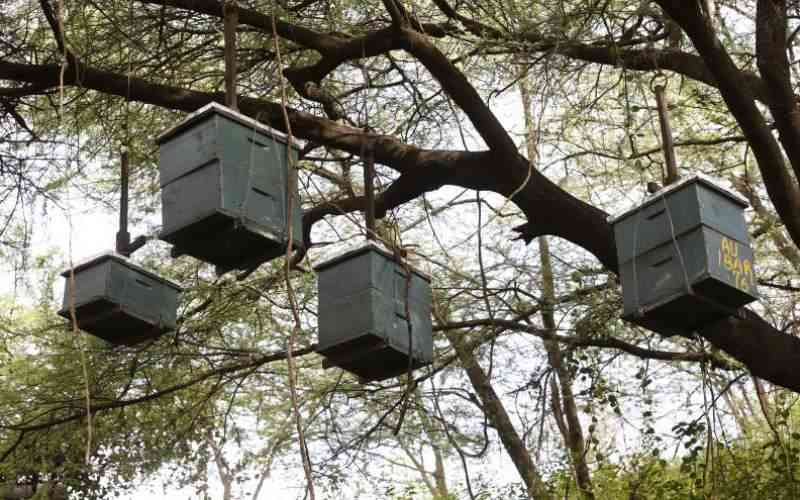×
The Standard e-Paper
Kenya’s Boldest Voice

Bee Hives at Kapkuikui Primary School in Baringo south
Egerton University is currently working on a bee propagation project that will enable farmers buy mature queens to start their bee farms instead of waiting for the insects to colonize their hives.







